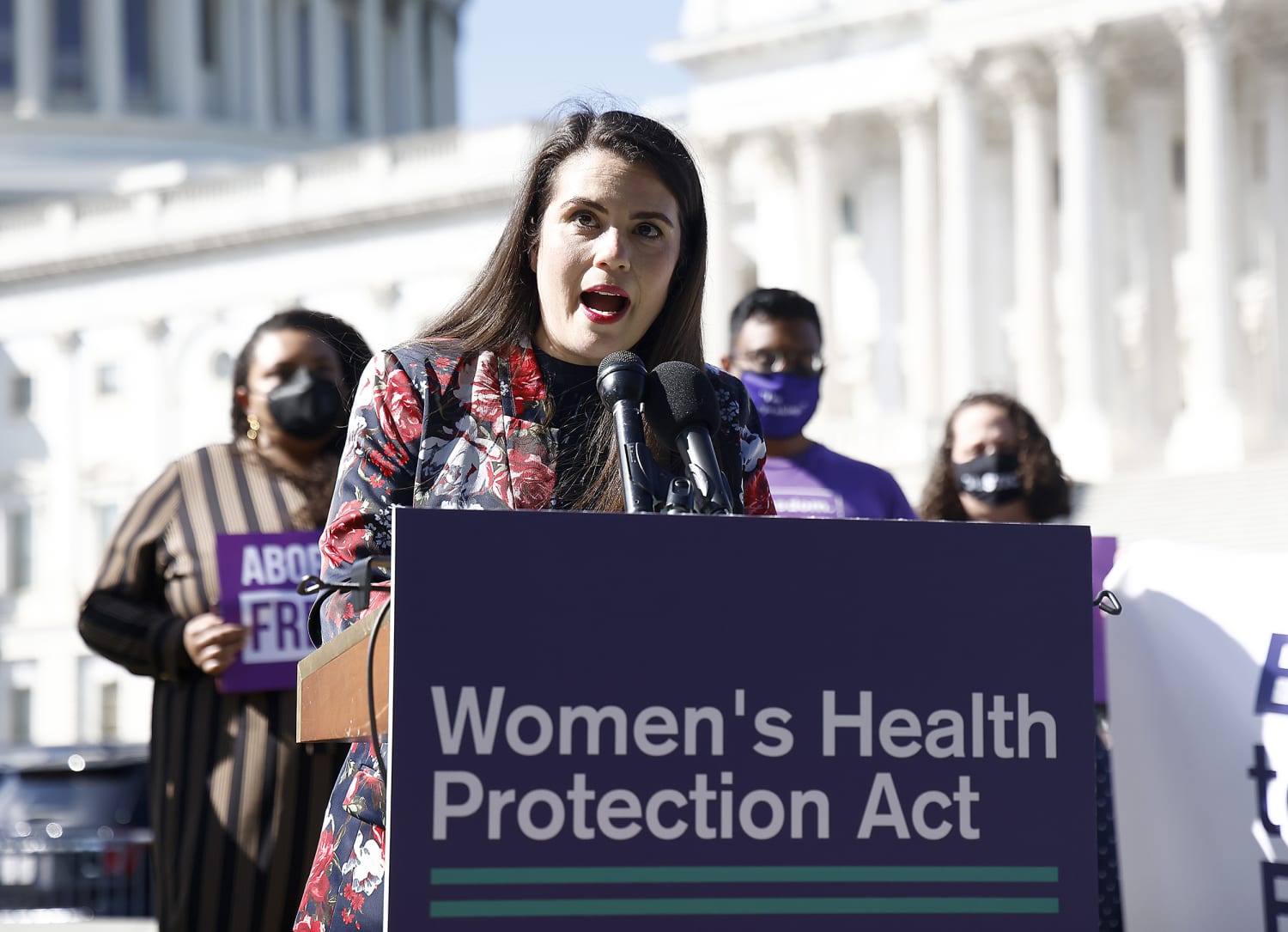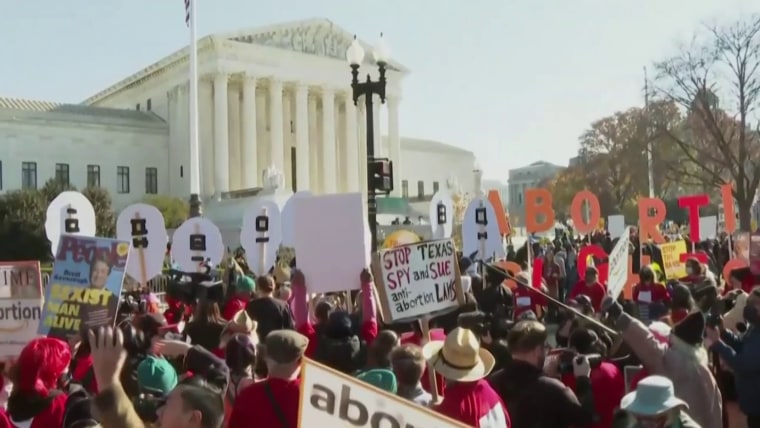The abortion debate is largely presented as a stark divide between secular people who support access to abortion care and religious people who oppose it. This false binary has obscured the diversity of religious positions on the issue, particularly of those who support abortion access. While Jewish support for abortion has been recognized on some occasions, support for abortion rights in Christianity, Islam and other religious traditions has largely been ignored.
Robust media coverage of Christian opposition to abortion, in particular, has amplified the anti-choice Christian perspective in the public debate. But it’s actually a minority position.
With media attention trained on Friday’s March for Life in Washington and the upcoming anniversary of Roe v. Wade — perhaps the last, as an increasingly conservative Supreme Court might strike it down later this year — it’s important to correct this mistaken characterization of religious Americans’ views on abortion.
The focus on religious opposition to abortion overlooks the perspectives and religious commitments of the millions of people who have abortions in this country. Additionally, an imbalance in media coverage normalizes religious opposition to abortion, thus paving the way for particular theological beliefs to be codified into law. This ultimately denies the right of religious freedom to other faith communities whose beliefs about pregnancy, abortion and childbearing differ.
Robust media coverage of Christian opposition to abortion, in particular, has amplified the anti-choice Christian perspective in the public debate. But it’s actually a minority position; only 45 percent of all Christians think abortion should be illegal in most or all circumstances. The majority of white mainline Protestants (59 percent), Black Protestants (56 percent) and white Roman Catholics (52 percent) support legal access to abortion in all or most cases.
The majority of adherents of other faiths show similar, and in many cases stronger, support for abortion rights. The majority of Jews (70 percent), Muslims (51 percent), Buddhists (69 percent), Hindus (62 percent) and Unitarian Universalists (83 percent) support the legality of abortion in all or most cases.
Media coverage of religion and abortion also perpetuates a particularly harmful narrative about religious women and their reproductive autonomy. In stories about Christian women and unwanted pregnancies, for instance, we are usually led to believe that these women are forced by their faith to continue these pregnancies.
Consider The New York Times Magazine cover story from Dec. 2. Merritt Tierce got pregnant at 19 and, because of her Christian faith, decided not to terminate her pregnancy. Her story reinforces a popular (though certainly not universal) narrative that Christian women shouldn’t have abortions, as she writes, “No one asked if I was ready to be a mother or a wife. No one asked if I was ready to disappear.”
It often seems religion is not even a relevant statistical data point in understanding who gets abortions. In fact, 62 percent percent of women who have abortions identify as women of faith. Religiously identified women, with the notable exception of evangelical women, have abortions at virtually the same rate as their representation in the population.
For the last six months, our research team has conducted interviews with women having abortions in North Carolina who identify as Jewish, Christian or Muslim. We found that many women who identify as religious see their abortions as supported by their religious beliefs.
For many Christian women, the decision to terminate a pregnancy is one made from a kind of love that is in harmony with their religious views. Jane, a white college student, explained that she wasn’t in a position to give a child “the right life right now” and that her choice was made out of love for the children that she hoped to have some day. She connected this love to her understanding of Christ’s love. “It was Christ’s love to die for us. It was God’s love to send his Son to die for us, and then it was God’s love that brought him back. Me making a choice of love, I don’t see anything wrong with that.”
Sidrah, a Muslim woman with three children, described herself as a “very religious person.” She told us, “If there was any doubt in my mind that Islam does not allow it, I wouldn’t have gone through it.” In fact, Sidrah said the termination brought her closer to God. “At that moment, only He was giving me the light, the rope to get out of that situation, and other people were trying to push me in and push me into that hole, and I knew it was going to be so hard for our family.” Although her mother and sister were pressuring her to keep the pregnancy, despite her mental health and financial difficulties, her husband was supportive, and Sidrah drew on her relationship with God to guide her toward termination.
It’s not just religious individuals: Many faith leaders support abortion access, and any effort to grapple with abortion policy must take these perspectives into account. Many Christian pastors are outspoken about their support for women seeking abortions. Over 1,000 rabbis across North America are teaching and writing about the ways Judaism supports, and in some cases requires, terminating a pregnancy. And for the past several decades, several Muslim scholars and jurists have been writing juridical opinions in support of abortion rights for women under many common medical and personal circumstances.
Furthermore, faith groups have been working for the past year to build a multiracial, multifaith movement of congregations across the country that will publicly proclaim their support for reproductive dignity. The national designation for SACReD (Spiritual Alliance of Congregations for Reproductive Dignity)congregations launches next week with training and support for congregations to study ethical issues related to pregnancy, abortion and child-bearing and work to destigmatize abortion.
Religious diversity on abortion is particularly important to keep in mind as the Supreme Court considers whether Mississippi’s abortion restrictions are constitutional. The imminent threat to Roe v. Wade elicited significant concern from many religious communities, and an amicus brief to the Supreme Court signed onto by Muslim, Christian, Jewish, Unitarian, Sikh and other groups reflects a challenge to the dominant narrative that religions are anti-abortion.
The brief states that many religious traditions “recognize and support the moral right of each woman to make her own decisions about her pregnancy” and that allowing the Mississippi law to stay in place would be contrary to the First Amendment’s guarantee of the free exercise of religion “by imposing the view of certain faiths upon all women.” Indeed, many religions view the beginning of human life and the termination of pregnancies in ways that are at odds with the state’s ban.
The time is long overdue for the American public to recognize the diversity of religious positions in the abortion debate in this country, for our media to portray that diversity and for our courts to honor it.
Source: | This article originally belongs to Nbcnews.com











